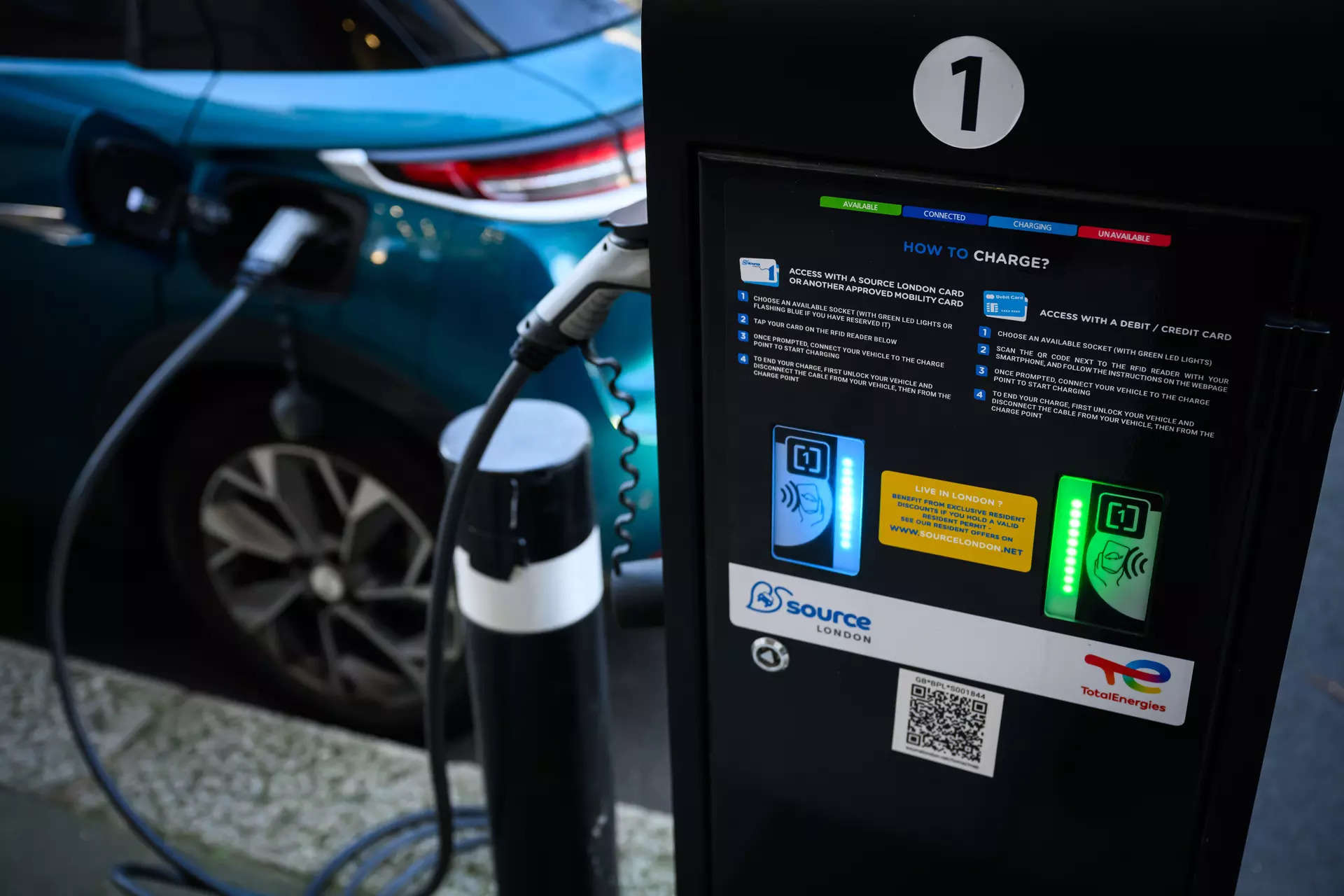
iElectric vehicles (EVs) are set to scale a new milestone, breaching the 100,000 sales mark this financial year (FY24), fuelling the government’s ambitious aim of electrifying up to 30% of all passenger vehicle sales by 2030.
The sales surge would be propelled by falling battery prices and resultant product price cuts by some automakers, robust government support for eco-friendly vehicles, higher prices of fossil fuels and growing environmental awareness among consumers. Launch of new models by automakers is also helping attract new buyers into this segment. This year’s sales performance would mark a 67% jump from the 60,910 electric PVs sold in FY23.
In the electric two-wheeler segment too, sales are expected to climb 25% to an all-time high of more than 758,000 units this fiscal, according to market research firm Jato Dynamics.
Despite the robust sales, EV penetration in India remains low due to consumer concerns over affordability, range anxiety and inadequate charging infrastructure.
EVs currently comprise about 2.3% of all passenger vehicles sold in the country. In two-wheelers, the electric share is 4.8% of the domestic market.
Carmakers are raising their bets by launching more electric mass models. Tata Motors dominates the EV market with its Tiago, Nexon, Tigor and Punch models, followed by MG Motor India, and Mahindra & Mahindra. China’s BYD, a relatively new entrant, is also making strong inroads, surging ahead of even established rivals such as South Korea’s Hyundai and Kia.
Tata Motors, with a more than 70% share of the EV market, plans to expand its portfolio in this category by rolling out the Harrier EV and Curvv EV models over the next few months.
The automaker, India’s third-largest, has lofty electric ambitions. EVs already account for 14-15% of the company’s sales, which it aims to increase to 25% by 2027 and 50% by the end of the decade.
EVs continue to make up a major share of MG Motor India’s overall vehicle sales, accounting for about 33% of total units sold in February. Gaurav Gupta, deputy managing director at MG Motor India, said, “Around 30% of our total sales come from our EV models, as the company is continuing to enhance its product portfolio.”
MG is one of the first automakers to launch EVs in India, starting with the ZS model, and the Comet launched last year.
China’s SAIC Motor Corp-owned MG Motor India and JSW also kickstarted a joint venture that will produce both electric and internal combustion engine cars with the aim of capturing a large chunk of the Indian market.
In the two-wheeler segment, Ola Electric leads the pack with the highest sales and market share, followed by TVS Motor, Bajaj Auto, and Ather Energy.
While EVs have a higher upfront cost, their lower fuel and maintenance expenses, coupled with government incentives, make them relatively more cost-competitive compared with petrol and diesel vehicles in the long run, especially for high-mileage drivers, CareEdge Ratings said in its latest report.

